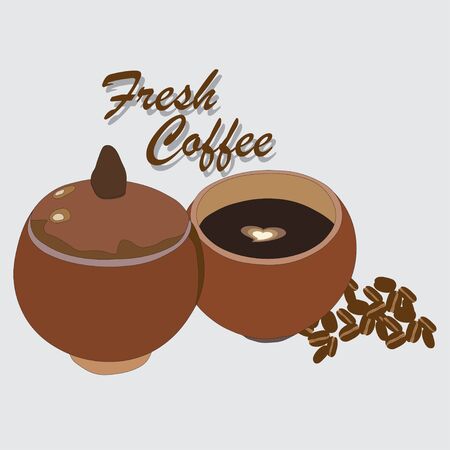1. Introduction to Coffee Processing
Imagine waking up in the morning, brewing a fresh cup of coffee, and savoring that first aromatic sip. But have you ever wondered about the journey your coffee makes before it lands in your favorite mug? Coffee is more than just a pick-me-up—its a story that begins on farms across the globe and ends right here in kitchens and cafes all over the United States.
The Journey from Farm to Cup
The path from coffee cherry to roasted bean is filled with fascinating steps, and one of the most crucial stages is processing. Coffee processing refers to how the fruit (the coffee cherry) is transformed into green coffee beans ready for roasting. The way coffee is processed has a huge impact on its flavor, aroma, and overall quality. Whether you like your brew bright and fruity or rich and chocolatey, it often comes down to how those beans were handled at the source.
Main Coffee Processing Methods
There are three main ways that coffee is processed at origin:
| Processing Method | Description | Flavor Profile |
|---|---|---|
| Washed (Wet) | Coffee cherries are pulped, fermented, washed with water, and dried. | Clean, bright, often citrusy or floral notes. |
| Natural (Dry) | Coffee cherries are dried whole before the beans are removed. | Fruity, sweet, heavier body—think berry or wine-like flavors. |
| Honey (Semi-washed) | Pulped but some fruit remains on the bean during drying. | Balanced sweetness, smooth body; somewhere between washed and natural. |
How Processing Shapes Your Cup
These methods aren’t just technical details—theyre what makes a Colombian pour-over taste different from an Ethiopian espresso. U.S. coffee drinkers can explore unique flavors thanks to diverse processing choices made by farmers around the world. Next time you’re enjoying your morning cup, think about the hands and decisions behind every sip—and how choosing fair trade coffee helps support those farmers while bringing more flavor to your table.
2. Demystifying Fair Trade in Coffee
What Does “Fair Trade” Really Mean?
If you’ve ever picked up a bag of coffee and noticed a “Fair Trade” label, you might have wondered what’s behind that stamp. In simple terms, fair trade is a certification that ensures farmers are paid a minimum price for their coffee beans, no matter how the global market fluctuates. It’s about protecting growers from extreme price drops and supporting sustainable practices on their farms.
How Fair Trade Impacts Coffee Farmers
For many coffee farmers, especially in Latin America, Africa, and Asia, fair trade is more than just a business model—it’s a lifeline. Let’s break down what changes for them:
| Aspect | Without Fair Trade | With Fair Trade |
|---|---|---|
| Price Stability | Prices can drop below production cost | Guaranteed minimum price |
| Community Investment | Little to no funds for local projects | Extra premiums fund schools & health clinics |
| Environmental Practices | No requirements; often unsustainable methods | Sustainable farming encouraged & rewarded |
| Bargaining Power | Farmers negotiate alone with buyers | Cooperative support strengthens their voice |
Why Should American Consumers Care?
Coffee isn’t just about flavor—it’s about connection. By choosing fair trade coffee at your local grocery store or favorite café, you’re joining a global effort to support small-scale farmers. Here’s why it matters:
- Empowering Communities: Your morning cup can help fund education and healthcare in farming regions.
- Sustainability: Many fair trade farms use environmentally friendly practices, so your choices are better for the planet.
- Taste with Purpose: Fair trade often means higher quality beans—so you get a flavorful brew with a feel-good story.
- Transparency: Fair trade labels make it easier to know where your coffee comes from and who grew it.
The Real-World Impact: A Quick Look
Imagine this: Every time you pick up a fair trade bag of coffee, you’re helping someone across the world send their kids to school or invest in safer equipment. These aren’t just distant stories—they’re woven into every cup brewed here in the U.S., connecting city dwellers and rural farmers through something as simple as a shared love for good coffee.

3. Meet the Farmers: Stories from the Source
Every cup of coffee has a story—and it all starts with the farmers. In the world of fair trade and ethical sourcing, these stories are about more than just beans; they’re about people, families, and communities whose lives change when U.S. consumers choose to support them.
The Faces Behind Your Morning Brew
Let’s travel to Central America, Africa, and Asia, where coffee is life. Meet Maria from Guatemala, who grew up on her family’s small coffee farm. Through a fair trade cooperative, Maria now gets a stable price for her beans, even when market prices drop. This means her kids can go to school and her family has healthcare—simple things that were once out of reach.
A Tale from Ethiopia
In Ethiopia, we meet Tesfaye. His village used to struggle with low coffee prices and limited resources. After joining a fair trade network, Tesfaye was able to invest in better processing equipment. The result? Higher quality beans that fetch a premium price in the U.S., plus new wells for clean water in his community.
How Fair Trade Makes a Difference
| Farmer Story | Before Fair Trade | After Fair Trade Partnership |
|---|---|---|
| Maria (Guatemala) | Unstable income Lack of access to education/healthcare |
Guaranteed minimum price Kids attend school Family has medical care |
| Tesfaye (Ethiopia) | Poor processing tools Low bean prices No clean water access |
Upgraded equipment Premium bean pricing Community wells built |
| Anita (Colombia) | No bargaining power Difficult living conditions |
Co-op support Improved housing and nutrition |
The Ripple Effect: From Farm to City Café
These changes aren’t just numbers—they’re real improvements in daily life. When you sip your latte at a local café in Seattle or New York, you’re part of this chain of positive impact. Ethical partnerships mean farmers get paid fairly, their kids have brighter futures, and U.S. consumers can feel good about every brew.
4. From Seed to Cup: Traceability and Transparency
Ever wondered how that aromatic cup of coffee landed in your favorite mug? In the U.S., more coffee lovers are asking this question—and for good reason. The journey from seed to cup isn’t just about taste; it’s about trust. Today, traceability and transparency are at the heart of what makes coffee truly special and ethical.
Why Traceability Matters
Traceability means being able to follow your coffee’s story all the way back to the farm where it was grown. For American consumers, this is more than a trend—it’s a movement toward knowing who grew their coffee, under what conditions, and with which environmental practices. When brands can map every step of their supply chain, they’re not just selling coffee; they’re selling peace of mind.
Transparency Builds Trust
Transparency goes hand in hand with traceability. It means open communication about sourcing, pricing, labor practices, and processing methods. For U.S. buyers, transparency is crucial: it allows them to choose brands that align with their values—whether that’s supporting small farmers or ensuring fair wages across the board.
Meeting the Demand for Ethical Sourcing
The demand for ethically sourced coffee is booming in America. Consumers want proof that farmers received a fair price and that no shortcuts were taken during processing. Coffee companies respond by providing detailed information on labels, websites, or even through QR codes that tell the bean’s entire journey.
| What U.S. Consumers Look For | How Brands Respond |
|---|---|
| Origin details (farm, region) | Map-based traceability on packaging |
| Fair Trade certifications | Display of certification logos and standards |
| Processing method transparency | Descriptions of washed, natural, or honey processes |
| Farmer stories & community impact | Features on websites or social media about producers |
This focus on transparency isn’t just good for business—it’s reshaping relationships between farmers and drinkers. By knowing exactly where their dollars go, U.S. consumers feel connected to global communities and empowered to support sustainable change.
5. How U.S. Coffee Drinkers Make a Difference
The Power of Your Daily Cup
Every time you order a latte at your favorite local café or brew a pot at home, you’re making choices that ripple far beyond your kitchen. American coffee drinkers play a big role in shaping the global coffee industry—especially when it comes to supporting farmers, encouraging fair trade, and promoting sustainability.
Choosing Fair Trade: Direct Impact on Farmers
Fair Trade coffee isn’t just a label; it’s a promise that farmers are paid fairly for their hard work. When you pick up a bag of Fair Trade-certified beans at the grocery store or request them at a café, you help ensure that small-scale farmers receive better wages, access to healthcare, and improved working conditions. This helps entire farming communities thrive instead of just getting by.
| Coffee Choice | Impact on Farmers |
|---|---|
| Regular Coffee | Market price; often lower wages for farmers |
| Fair Trade Coffee | Stable prices; community investment; higher wages |
Sustainability: Protecting Land and Future Harvests
Many American coffee lovers are now looking for more than just great taste—they want to know their brew is good for the planet too. Coffees labeled as organic, Rainforest Alliance, or shade-grown are grown with practices that help conserve water, reduce chemical use, and protect wildlife habitats. When U.S. consumers seek out these coffees, they support environmentally friendly farming and healthier futures for both people and the planet.
Eco-Friendly Choices Matter
| Sustainable Label | Environmental Benefit |
|---|---|
| Organic | No synthetic chemicals; soil health preserved |
| Rainforest Alliance | Biodiversity protected; forests conserved |
| Shade-Grown | Wildlife habitat maintained; less deforestation |
Shaping Industry Trends Together
The U.S. is one of the world’s largest coffee markets, so American preferences set trends across the globe. When drinkers demand ethically sourced and sustainable coffee, roasters and retailers pay attention—leading to more options for everyone and stronger support for responsible farming practices. Your everyday choices inspire businesses to adopt better sourcing standards and promote transparency from bean to cup.
Your Role as a Coffee Consumer
- Ask about the origins of your coffee at cafés or shops
- Choose brands with clear ethical and environmental commitments
- Share what you learn with friends and family to spread positive change
Your morning routine can be part of something bigger—a movement connecting U.S. consumers with farmers worldwide, building stronger communities and a more sustainable future for all.
6. Coffee Culture in the U.S.: More Than Just a Drink
How Ethical Coffee Connects Communities
Coffee is more than just a morning pick-me-up for most Americans—its a daily ritual that brings people together and sparks conversations. In cities like Seattle, Portland, and New York, coffee shops are local gathering spots where neighbors connect and ideas brew alongside espresso. But as ethical coffee and Fair Trade practices become more mainstream, these cafes also tell stories of distant farmers and sustainable journeys, bridging continents through every cup.
Local Flavor Experiences: From Farm to Cup
Today’s American coffee lovers crave more than generic brews—they seek flavors with a story. Fair Trade and direct-trade coffees highlight unique origins, processing methods, and the people behind each bean. Specialty shops often host tastings or “cuppings,” letting customers explore everything from fruity Ethiopian pour-overs to nutty Guatemalan espressos. Here’s how these flavor experiences connect back to ethical sourcing:
| Origin Country | Flavor Profile | Processing Method | Ethical Impact |
|---|---|---|---|
| Ethiopia | Berries, Floral Notes | Natural/Dry | Supports smallholder farmers and biodiversity |
| Colombia | Citrus, Chocolatey | Washed/Wet | Fair wages and sustainable farming practices |
| Guatemala | Nuts, Cocoa, Spices | Washed/Semi-Washed | Community development projects funded by Fair Trade premiums |
| Sumatra (Indonesia) | Earthy, Herbal, Full-Bodied | Wet-Hulled/Giling Basah | Empowers women growers and supports wildlife habitats |
Coffee as an Expression of Values in Modern American Life
Sipping an ethically sourced latte at your favorite neighborhood café does more than satisfy your taste buds—it reflects personal values. Many U.S. consumers now look for coffees labeled as Fair Trade or direct trade because they want to make choices that support justice, transparency, and environmental care. This shift is reshaping the American coffee scene into one where every cup serves up not just flavor but also fairness and connection.


